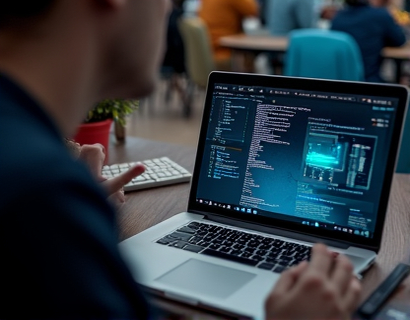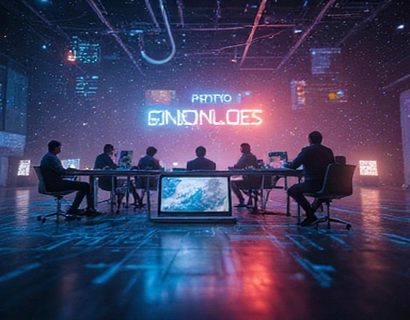Transforming Learning: The Power of AI-Powered Chat Interfaces in Robotics Education
The integration of AI-powered chat interfaces in education, particularly in specialized fields like robotics, marks a significant leap forward in how students and young learners engage with complex subjects. This innovative approach not only makes learning more accessible but also ensures that the information provided is both accurate and safe for young minds. By leveraging the capabilities of artificial intelligence, these platforms can deliver tailored content that caters to the diverse needs of students, making the intricate world of robotics both understandable and exciting.
Ensuring Safety and Specialization
A key advantage of using AI-powered chat interfaces in robotics education is the emphasis on safety and specialization. These platforms are designed to provide content that is not only relevant to the subject matter but also appropriate for the age and educational level of the users. Content verification processes ensure that the information delivered is accurate, up-to-date, and free from misleading or harmful data. This is particularly crucial in a field like robotics, where precision and reliability are paramount.
Making Complex Concepts Accessible
Robotics, as a field, encompasses a wide range of disciplines including mechanical engineering, electronics, computer science, and more. For students and young learners, these concepts can be overwhelming. An AI-powered chat interface simplifies this by breaking down complex ideas into digestible pieces. Through interactive conversations, learners can ask questions, receive immediate feedback, and explore topics in depth at their own pace. This personalized learning experience helps demystify robotics, making it an approachable and enjoyable subject.
Enhancing Engagement Through Interactivity
The interactive nature of AI chat interfaces significantly enhances the learning experience. Unlike traditional methods where students passively receive information, AI-powered chat platforms encourage active participation. Users can engage in dialogues, participate in simulations, and even design simple robotic systems through guided steps. This hands-on approach not only boosts understanding but also fosters creativity and problem-solving skills, essential qualities for any future robotics enthusiast or professional.
Tailored Learning Paths
One of the most compelling features of AI-powered chat interfaces is their ability to adapt to individual learning styles and paces. By analyzing user interactions and performance, the AI can tailor the content to suit each learner's needs. For instance, a student who grasps mechanical principles quickly might be introduced to more advanced topics in software programming, while another student might require additional support in understanding basic mechanical concepts. This personalized approach ensures that no learner is left behind, promoting a more inclusive and effective educational environment.
Supporting STEM Education
The integration of AI-powered chat interfaces in robotics education aligns perfectly with the goals of STEM (Science, Technology, Engineering, and Mathematics) education. These platforms provide a comprehensive resource that supports the development of critical thinking, analytical skills, and technical knowledge. By exposing students to real-world applications of STEM concepts through robotics, these platforms inspire a deeper interest in these subjects. This, in turn, can lead to a greater number of students pursuing careers in STEM fields, addressing the growing demand for skilled professionals in these areas.
Creating a Child-Friendly Environment
For young learners, the transition to more complex subjects like robotics can be daunting. An AI-powered chat interface designed with a child-friendly approach removes these barriers. The language used is simple and relatable, and the interface is visually engaging, with elements that capture the imagination of young minds. Safety features, such as restricted access to certain topics and controlled interactions, ensure that children can explore robotics without exposure to inappropriate content or unsafe online interactions.
Educator Toolkit
For educators, AI-powered chat interfaces offer a powerful tool to enhance their teaching methods. These platforms can serve as supplementary resources, providing additional explanations, examples, and interactive activities to complement classroom lessons. Teachers can monitor student progress, identify areas where students need extra help, and adjust their teaching strategies accordingly. This collaborative approach between AI and human educators can lead to more effective and engaging lessons, ultimately improving student outcomes.
Future Prospects and Innovations
The potential for AI-powered chat interfaces in robotics education is vast. As technology advances, we can expect even more sophisticated interactions, including virtual reality integrations and more advanced simulation capabilities. These innovations will further bridge the gap between theory and practice, allowing students to experiment with robotic systems in a safe and controlled virtual environment. Additionally, the continuous learning capabilities of AI ensure that the content remains current, reflecting the latest developments and trends in the robotics industry.
Conclusion
The advent of AI-powered chat interfaces in robotics education represents a transformative shift in how students and young learners access and understand complex subjects. By prioritizing safety, specialization, and interactivity, these platforms make robotics an accessible and enjoyable field of study. As we look to the future, the integration of AI in education promises to open new doors of opportunity, fostering a generation of innovators and problem solvers equipped to tackle the challenges of tomorrow.










































